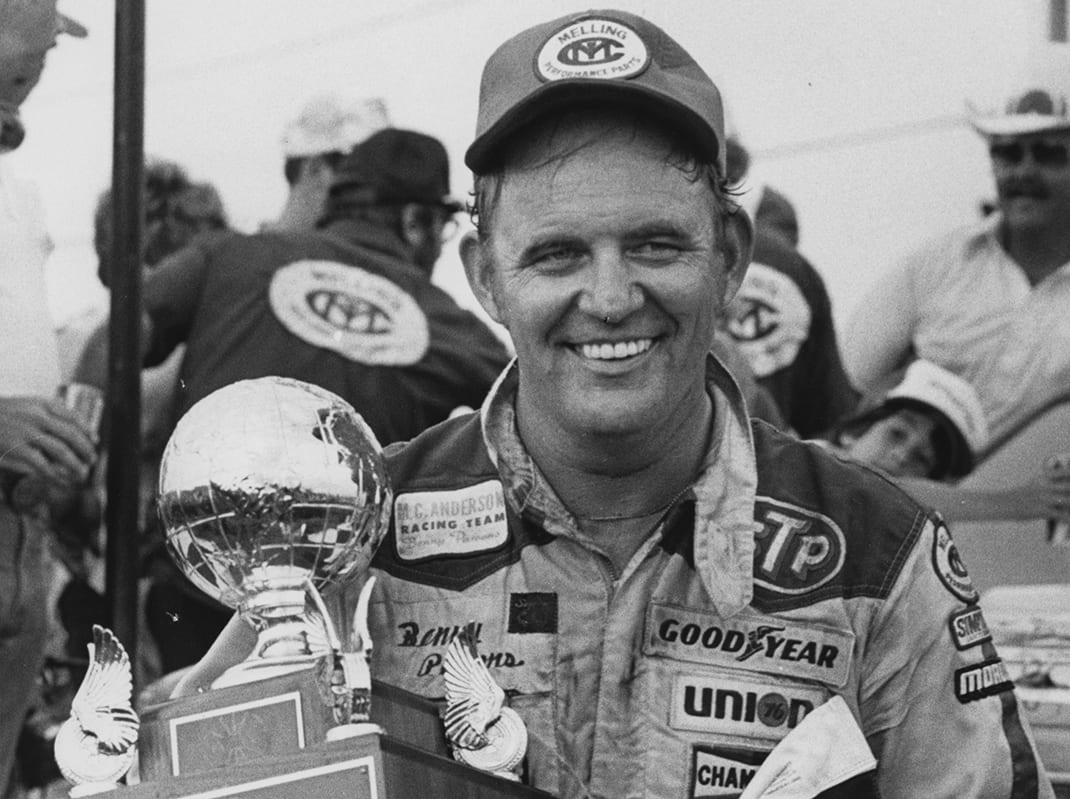
Parsons confirmed he had a difficult time hanging on to the lead.
“I could get by Darrell, but I sure had trouble staying in front because he passed me a couple of times,” Parsons said. “We stayed close and he hit me in the car one time, but there wasn’t any trouble.
“In fact, the last thing I really remember is coming out of the third turn and taking the checkered flag. Everything before that is pretty much a blank right now.”
Following the victory in Charlotte, Parsons added wins at Michigan Int’l Speedway and Ontario and finished third in the 1980 standings — behind Earnhardt and Yarborough.
Parsons retired from driving eight years later with 21 Cup victories. The beloved driver and television broadcaster died on Jan. 16, 2007, after a lengthy battle with cancer.
Waltrip retired from driving in 2000 after amassing 84 Cup wins and three championships. He, too, built a career as a television broadcaster and calls races for FOX Sports. The five-time winner of the 600, with additional victories coming in 1985, ’88 and ’89, remembers the intensity of that day.
“I had the best car all day long, but we should have taken tires on that last stop and we didn’t,” Waltrip said. “As it turned out, my tires were worn out and Benny’s tires were better than mine. He was able run with me and got by me and finished about a half-car length ahead of me. We should have won it. During every stop, (crew chief) Buddy Parrott had put tires on the car, but we outsmarted ourselves there at the end.
“I remember we had a special pit crew competition going on that day and we did win that but not the race,” Waltrip added. “That was just a bad decision. We were guilty of making too many bad decisions in those days.”
Waltrip holds a very deep respect for his friend and fellow competitor that he first got to know in the early 1970s.
“Benny was just a nice man and so easy going,” Waltrip said. “You would never think about him being aggressive on the track or starting a big fight. I had a lot of battles with him at Bristol and Ontario and other places and he was a top-notch race car driver. Without a doubt, I feel he should be voted into the NASCAR Hall of Fame. Those who have won a championship should be considered before others on the list.”
Mike Hembree, an award-winning motorsports writer and author, covered the race that day for The Greenville (S.C.) News as the sell-out crowd saw one of the most exciting finishes in the track’s then two-decade history.
“My standout memory from this race is the fact that there was such intense competition for the win at the end of a long 600 miles,” Hembree said. “The 600 tends to beat up the field, with cars and drivers so fatigued at the end of the race that tight, quality finishes sometimes aren’t part of the picture.”
H.A. “Humpy” Wheeler, Charlotte Motor Speedway’s president and general manager from 1975 to 2008, was committed to bringing the best show possible to fans in attendance. Severe weather in the area caused many headaches and threatened to postpone the race before the full distance could be completed.
“It was a bittersweet day because we had such bad weather,” Wheeler said. “We had two really bad thunder storms come through and had to red flag the race both times. We didn’t have lights (at the speedway) then and I was afraid we weren’t going to finish the race. The intensity got worse as the day went on because we could see those storms clouds growing. That’s the last thing you ever want to see as a promoter.
“I knew it was going to be a good one and there weren’t that many 600-mile finishes that were that exciting. I think 95 percent of the people there that day didn’t think Benny would beat Darrell. He showed some fortitude and courageousness that we didn’t think he had in him.”
